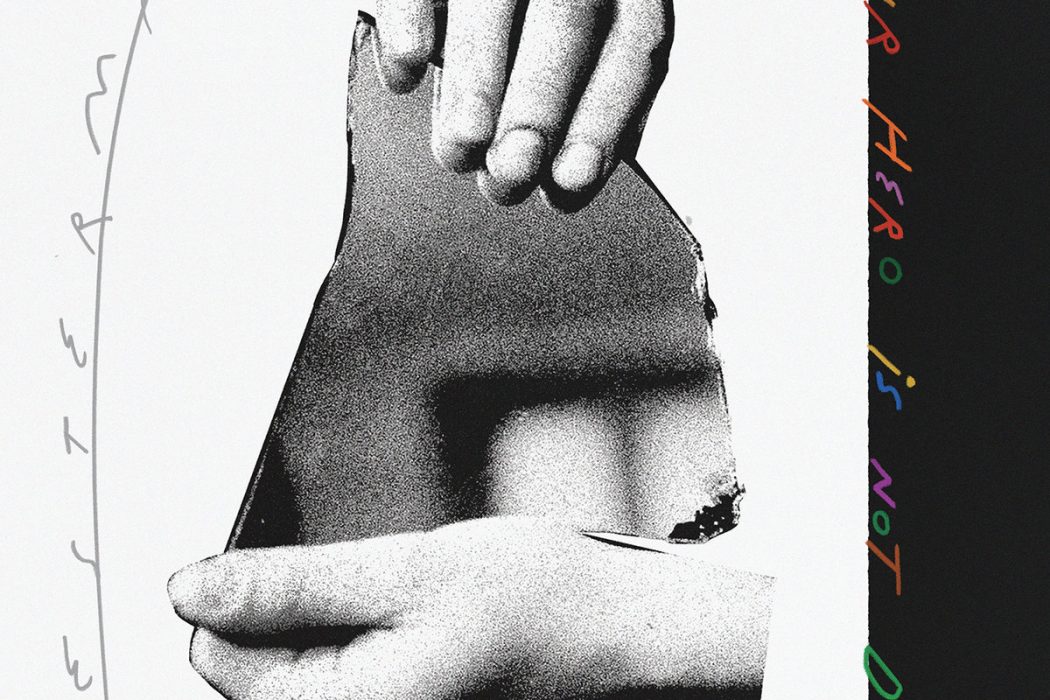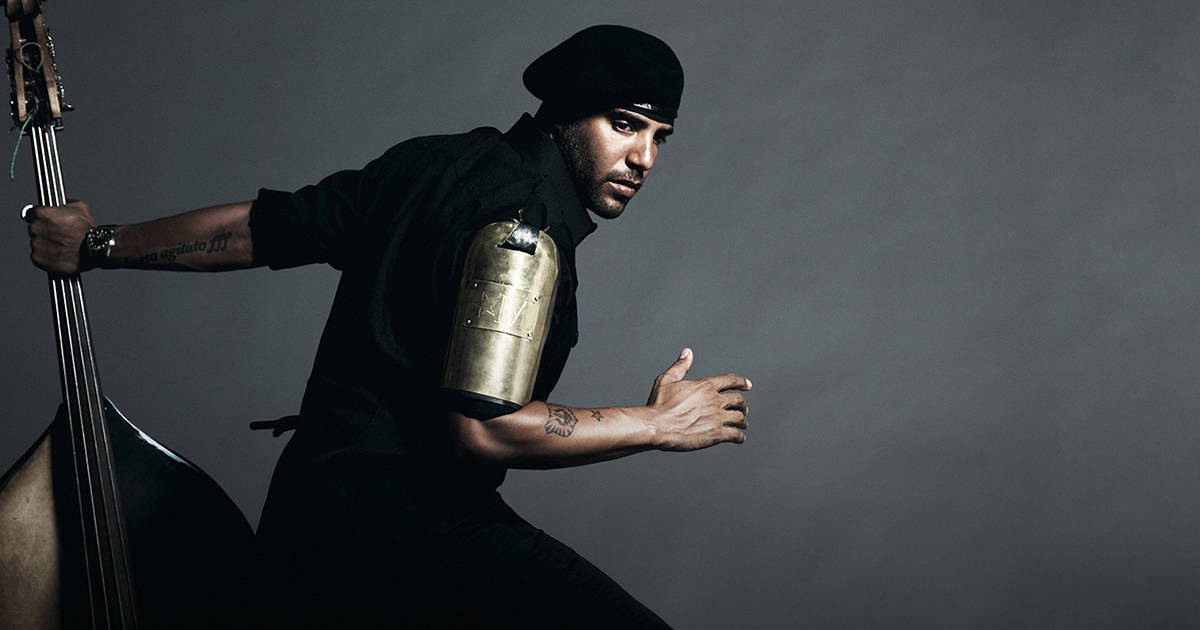Westerman fights futility with fluidity on debut album ‘Your Hero Is Not Dead,’ an album best enjoyed in one, soothing sitting, and Atwood Magazine spoke to him on its inception.
— —
A few weeks ago, with the UK’s lockdown in full swing, and his album’s title track newly-released, Atwood Magazine caught up with Will Westerman and sought to place his debut record – releasing tomorrow, June 5 – into the context of both global pessimism, and his own already acclaimed body of work. Through that album, Your Hero Is Not Dead, and his own words, it is evident how important clarity, creativity, and optimism are to Westerman now more than ever.
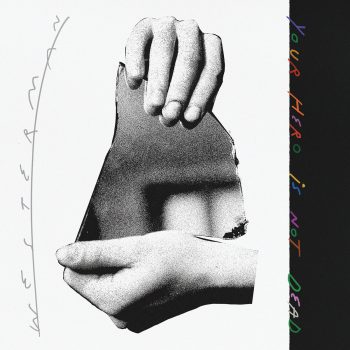
With a simple piano melody behind countless voices, Westerman introduces his debut album. The vocals are so tightly-woven that they flirt with discordance, and the lyrics are those which adorn the Bráulio Amado-designed sleeve in multi-coloured curls. These first seconds of opening track “Drawbridge” are like a fanfare, and the rest of the song revisits the melody, but not its words.
There is anticipation in the sustained guitar chords, and sporadic riffs from piano and bass provide a deft sense of movement. “Drawbridge” builds very gradually until a sudden end; it is an unconventional opener, of course. The second track, “The Line,” is immediately moody. It is underscored by an echoing bass, which skulks around a spitting drum-beat. Westerman half-talks his first lyrics, including a reference to ice cream which is noticeably sunnier than the instrumentation.
The chorus comes quickly, and it is a pleasingly catchy section. There is a level of urgency in the repetition of the song’s titular line, a keenness to demarcate the limits of two peoples’ interactions, interactions which represent wider considerations of right, wrong, and everything in between.

Westerman’s voice temporarily comes back down to earth after the more reaching chorus, but soon floats up again. He ascends as the music pauses, and fuzzy tones then usher in a weighty final section. “The Line” builds, and Westerman creates a heavy atmosphere comprised of dovetailing voices and coursing, synthetic tones. He eventually relieves the pressure with a calm call-and-response between his voice and his guitar. It is a stellar track, recently released as a single, and it ensures that the opening to Your Hero Is Not Dead is unmistakeably brooding.
Westerman then does away with introductions for the second time in three songs, abruptly announcing “Big Nothing Glow” with inimitably meandering vocals and a fingerstyle guitar part which makes fantastic use of space. Westerman’s efficient use of pauses and timing is one of his stand-out qualities, and it is on full display on his third track; he rushes neither his words nor melodies, often allowing them to ring out at the end of lines.
The opening bars of the song are deceptively complex, but Westerman’s selective enjambment makes them sound effortless. “Waiting On Design” emerges in a haze. A piano part quietly previews the album’s titular melody, and then Westerman’s voice is high, elevated above his typically clipped and taught guitar strokes. It is followed by “Think I’ll Stay,” a tighter song which returns to a scandalously good hook. Both tracks exhibit Westerman’s ability to retain a unique soundscape and style whilst also exploring different moods. “Waiting on Design” and “Think I’ll Stay” showcase an unpredictability where the melody is concerned and make consistent use of low-key drum beats and closed-chord guitars.
Come back,
Maybe we should stay for
One more drop of something;
I love to watch that nothing come
I’m waiting on design
The former track addresses relationships in the context of pain, and the reappraisal of such dynamics as a result of shared experiences.
No one wants to look at themselves
Through the faces they’ve stranded
It is, therefore, not conventionally sunny, but lines are delivered with a slight wistfulness, and the ending grooves towards an energised finale in comparison to “Think I’ll Stay,” which is slightly stricter – at least by Westerman’s standards. The two songs’ position within the album proves that the structure of Your Hero Is Not Dead was carefully curated, the record managing to become more musically layered in the middle third, balancing this deftly with some of the album’s more uneasy thoughts.
“Easy Money” feels very much at home on the record. Westerman’s voice is ever so slightly distorted, and yet relays lyrics which are some of the album’s sharpest. It plays like an uncomfortable realisation, the unease characterised in the murky guitars and snaking bass. The song’s assimilation into the record is a testament to the consistent quality of Westerman’s song-writing ability, but it also exhibits the strength of his musical identity.
It not only fits in with newer songs sonically but also deepens and enriches the content of Your Hero Is Not Dead, adding an emotional disquiet whilst not detracting from the thread of the album. “Blue Comanche” serves to soothe after the brilliantly fraught “Easy Money.” Its high harmonies and sedated beat contribute to the laid-back feel of the track, as do some effortless rhythms below the melody.
It sounds like a gentle wind, swooning through the grass. Westerman cruises at his own pace in the form of a low, relaxed guitar solo during the latter half; like the album as a whole, it is music to become lost in, yet it never sounds self-indulgent.

Your Hero Is Not Dead is a testament to Westerman’s boundless invention, and is clearly the result of a rich and creative musicality. The talent is matched by his desire to produce what is right for the moment; whereas “Easy Money” was left unaltered for the record, “Confirmation” has been re-worked, with shimmering results. The instrumentation is sharper without being overdone, and the vocals are more emotional, Westerman unexpectedly breaking loose at key points. What was already a strong track here makes more use of fleeting echoes, especially in its opening and closing moments.
Your Hero Is Not Dead is certainly fluid and runs together beautifully and holistically. Though Westerman utilises as many blunt stops and starts as he does elongated notes and words, the tracks are never stunted nor brutish. The decision to record “Confirmation” again sounds like a smart one, producing not only a more refined version but one which seamlessly integrates into the album – as does “Easy Money” in spite of its comparative longevity.
On “Paper Dogs,” Westerman smartly marries his typically mellow sound with flashes of urgency. His voice is flawless, and he uses it across multiple layers before pushing himself into a stirring middle section. Whereas the numerous vocal parts begin as reiterations and reinforcements, they increasingly swirl around the track, becoming unsettling refractions of the lead voice rather than reassuring the listener. Westerman’s humble song-writing process is again evident, but with glorious, three-dimensional results.
As he himself acknowledged, it would be a different song when recreated live, but its inclusion on Your Hero Is Not Dead is so welcome, and so beneficial, to the album. “Paper Dogs” makes clever use of the voice as a tone and instrument in itself, here establishing mood with its diverging voices. Then, in a rare moment of a unified chorus, “Paper Dogs” ends, signaling a hopeful turn and an ability to rebuild.
Don’t be afraid
To take it as it is
And let it
Float Over
“Float Over” is a highlight of the album. The melody, played out on a conspicuously acoustic guitar, is light and yet heavy. The song is not merely an interlude but seems to almost allot time to reflect on Your Hero Is Not Dead and allows Westerman to deliver his sole vocals with no distractions. There are flavours of “Easy Money” in the melody, a melody which weaves up and down the song with characteristic ease. There is comfort in the soft, padded beat, and a gentle depth arises from the tinny vibrations which are dotted around the track, flickering like wind-chimes. It is a perfect fit within the record, despite sounding the most different out of any of the album’s songs, and the decision to position it as the penultimate song is a brave yet rewarding one. It is not so much a denouement, as it is an opportunity to peacefully take stock.
The title track is more layered than many others on the record yet contains the same attention to detail and the same appreciation of space as the rest of the album. The beat grounds the track at walking pace, and its solidity means that when it pauses, on the pre-chorus for example, its absence is just as effective as its presence. Again, Westerman hones his music for the occasion.
In places, the lyrics run together slightly more on “Your Hero Is Not Dead” than on previous songs, but it contributes to an emotional intensity in the music – an outpouring – which the content of the song latches onto. The content is redemptive and comforting. Whether it is in the form of Superman who “turn[s] the earth backwards” or freedom after being “behind the bars you cling to,” Westerman convinces us that salvation is on its way and that the darkness will pass.
Your Hero Is Not Dead is both ice-cool and deeply reassuring. The relaxed feel of many of the tracks not only belies the inventive and exciting songwriting which has gone into them but manages to accommodate the meaningful content within. In spite of the apparently stop-start nature of its production, Your Hero Is Not Dead manages to be a richly holistic project.
Westerman’s use of common melodies across numerous tracks is a master-stroke and means that his messages, as well as his signature style, echo throughout the record. It is, as Westerman acknowledges, a hopeful record, and the optimism is enhanced by its structure: the sounds strengthen throughout, and the album benefits from moments of disquiet in the middle, courtesy of “Waiting on Design” and “Think I’ll Stay” most prominently. The pay-off which “Float Over” and “Your Hero Is Not Dead” then provide is thus given added weight.
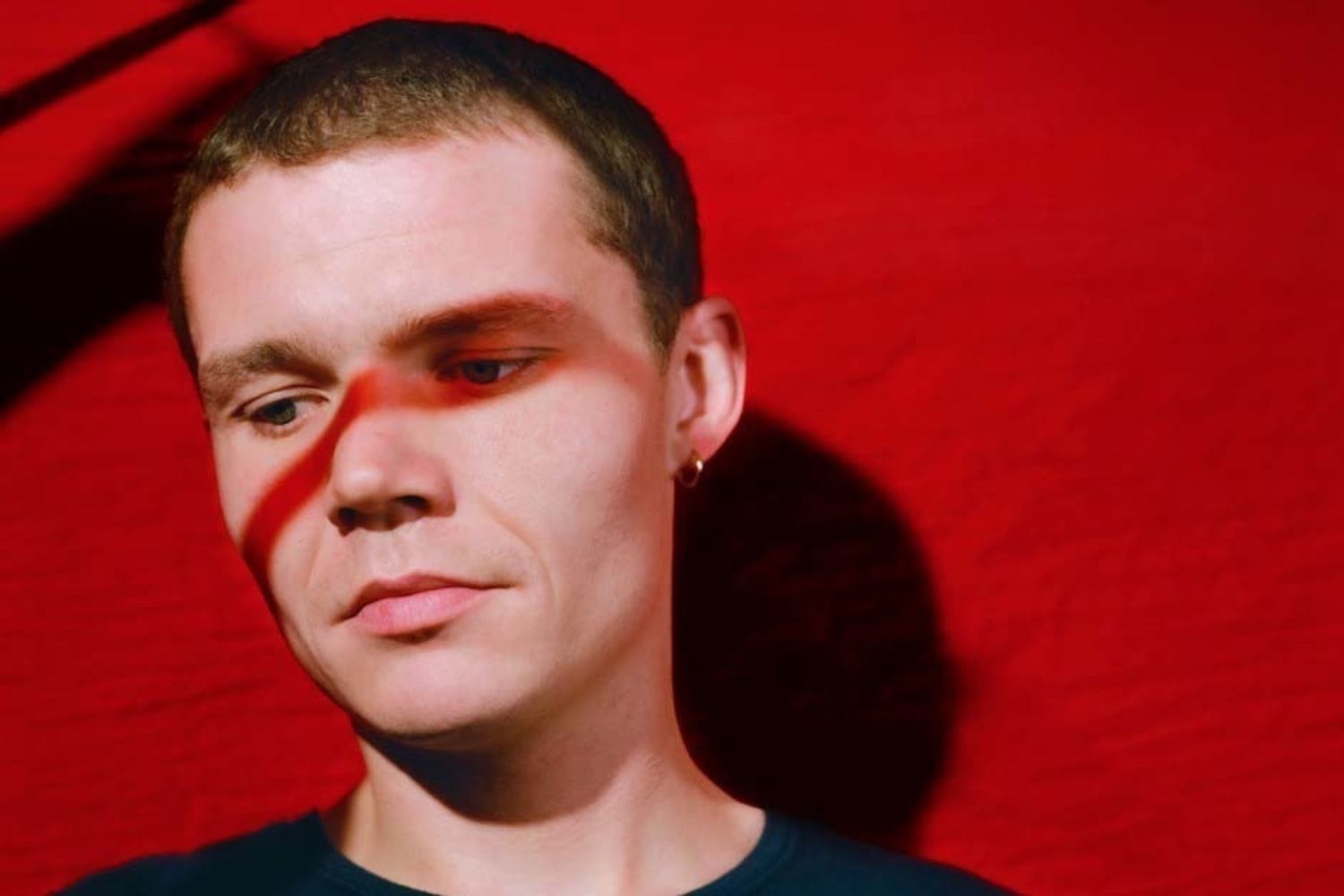
A CONVERSATION WITH WESTERMAN
Atwood Magazine: My first time seeing you, a little while back, you were supporting your friend Nilüfer Yanya in Birmingham, and if I remember correctly, it was just you and your guitar. You started with no warning, acapella, you just sort of clambered up – everyone was awe-struck, it was fantastic. I just wondered is there a certain appeal to playing your tracks like that, just yourself, in a very stripped back style?
Westerman: Yeah, I think it’s how I always used to play. I only really started playing with other musicians maybe a couple of years ago. It’s still good discipline – you have to think about how it will all work in a different way. It’s kind of more difficult in a way, playing on your own, as you can’t really hide anywhere… I like doing both.
There are some songs which just don’t work so well in that setting, on this album, but with the more kind of traditional song-structured things I still do think it’s a good acid test for the actual song, so if you can play it on a guitar or a piano, just one other element, and it still works.
Has that very much set you up for what you’ve produced since, thinking about and writing songs on a sort of one-instrument, one-voice basis?
Westerman: Yeah, I mean, that’s my kind of grounding. I mean I do sort of invert that: I’ll kind of play around with that more these days, like some of the tracks on the album. I mean, I did start them on a guitar, but you know the way that they end up.
I could play them but they would sound radically different. But it’s definitely something that I always think is a good sort of discipline when you’re starting, I think, because you just have to listen to the melody and pay attention to the lyrics, and then the other stuff. I think you can kind of, you can play around with that stuff and experiment in different ways of sort of augmenting and framing but that’s the sort of central piece of whatever it is you’re doing so… yeah, it’s still generally where I start.
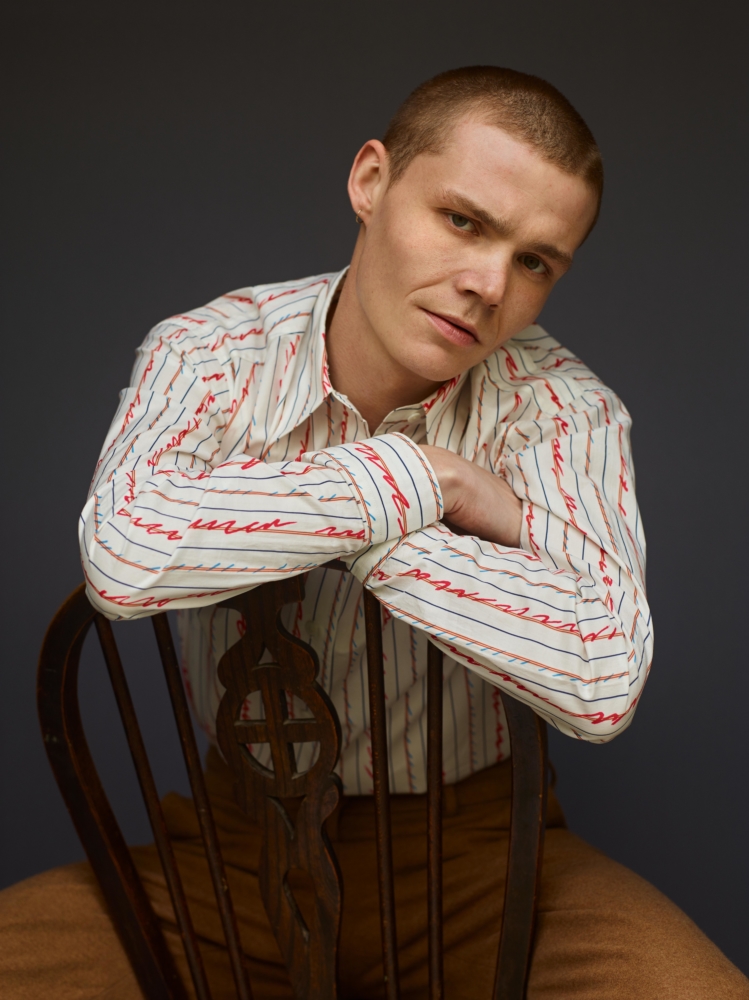
One of the things that stands out for me personally, you seem to really cleverly use space in your songs - you’re more than happy to let your words and melodies breathe a little; you don’t cram everything together.
Westerman: Yeah, thank you! I do think that a lot of music has just got too much information in it. And, yeah, I think it’s just trying to be concise. I think I spend a lot of time sort of editing and just trying to be as concise as I can. I think that also it’s just in terms of attention; I think it’s just about trying to sort of direct people to the part that they’re supposed to be following at any moment in time. If you have too many things going on at once, it’s kind of hard to do that.
How do you decide, say on a given day in the studio, which information to omit from a plan? How do you go about trimming it down to make sure you do not send too much at once?
Westerman: Erm- I think it’s just about balance really. It’s just about trying to listen to it. It’s about, I guess, just trying to appraise something with as newer ears as you can, you know, every day. So, you know, the process of making the record you hit lots of sort of roadblocks, where things aren’t quite working, and it’s just trying… I think, in terms of editing, because of the way we make it.
I don’t have everything mapped out with sort of references in advance. So it’s just trying lots of things and then it sounding kind of not balanced, and then trying to work out why that is and what it needs, whether it needs some sort of rhythmic pulse or kind of arpeggiating thing just to kind of keep it ticking, or if it just needs space or, if a vocal is the right thing to have, or if it’s better just to have music in that bit.
You sort of know it when you hear it maybe?
Westerman: Yeah, it’s quite intuitive but I have never been much of a sort of a full planner – I sort of just work it out as you go along.

You had the Ark EP in 2018 - but was there a particular reason you sort of waited to put out an album?
Westerman: Well, I mean, I have done it as fast as I could -Haha! – I think I didn’t want to just sort of take a lot of old tracks and then make a few new ones and just make a record, I wanted to make like a body of work, kind of all in a similar sort of setting.
There’s a song on the album, ‘Easy Money’, which is the same version, but yeah, I don’t know, that just seemed to fit sonically with what I’d done. I wanted to kind of work out what I wanted to do with an album and then sort of make it, as opposed to just try and collect a kind of minor hits – Haha!- and just sort of do it as fast as possible.
I have to say I was touring quite a lot, so it was kind of in stages, you know… I didn’t have like a period of time where I got it all done, I kind of had a month, and then I went away for two months, and then had another three months last year where it was sort of finished.
That’s interesting!
Westerman: Yeah, I mean I had the sort of the outline of it all done before that tour, but you know it wasn’t really anywhere near finished. And yeah then I had some sort of issues with changing management and stuff, so it was delayed a bit more by several months, and then obviously now it’s a pandemic, so that’s how it’s happened!
That idea you gave about not making a hit collection, as you put it, is that the motivation behind changing up songs, such as ‘Confirmation’ - you edited that slightly for its appearance on the album...
Westerman: Yeah I sort of just wanted to try that one again, and just kind of, I think importantly from my creative standpoint it was more interesting for me to try and just make lots of new music, but then also we kind of developed a sort of palette, just as we were making the record.
What do you mean by ‘palette’?
Westerman: So all the instrumentation and the kind of the sounds that we use for making the record; there’s a consistency in those, to an extent, because we sort of made the bulk of it out in Portugal last January, so we only had things that Nathan had brought to this house, so then that all kind of became the basis for the record. So, I don’t know, I just think it would have sounded weird to just drag and drop old bits into that thing. I think it would have just so stuck out… It needs to be sort of fluid, I think.

Regarding the closing track ‘Your Hero Is Not Dead’, you've alluded on Twitter to our current predicament as one of a couple of triggers for its release. I was wondering what convinced you, maybe within the song itself or now, particularly in the last couple of days, what told you now is the perfect time to put it out there?
Westerman: Well, it wasn’t going to be single but I think because everything has been thrown up in the air, all plans that anybody had had to be revised and it just seemed like… I don’t know… I’ve been thinking a lot at the moment about how I can try and do things to try and help, you know…… I didn’t write that song thinking that there was going to be a situation like this, but I think the sentiment of the song is something that I think could be kind of a nice sentiment to put out right now.
It was the central idea and motif of the album anyway; I just think it’s supposed to be kind of hopeful and comforting and I think this is just a period of time where I certainly feel like at points, I need that. So maybe other people would like to enjoy that.
That's really interesting. If I may say so, I think you’re right.
Westerman: I’m glad!
My final question, and I hope it doesn't come off as a glum or pessimistic one, and I hope I can channel your ‘Your Hero Is Not Dead’ messages! I was just wondering - maybe a bit tough to obviously quantify - but what are you hopeful for come June, come the release of the album?
Westerman: Erm- I hope in June people are allowed to see each other again. I don’t know what I hope for in terms of the album. I hope that it will be well-received and that people will find value and that it’s helpful to people, but more I hope that this situation has improved.
— —

Connect to Westerman on
Facebook, Twitter, Instagram
Discover new music on Atwood Magazine
? © 2020
:: Stream Westerman ::

